Adam's Heart Valve Surgery Blog – Page 82
Dr. Jennifer Ellis, MD – Heart Surgeon, Washington, DC,
By Adam Pick on September 11, 2007
From February through April of this year, I ran an extensive survey to better understand the realities of heart valve surgery for patients and their caregivers.
Some of the questions posed to the 78 former, heart valve surgery patients were about their cardiothoracic surgeons. The responses to these questions were very interesting.

As I reviewed the survey results, a few select heart surgeons received high marks and comments from their heart valve surgery patients. One of those top cardiothoracic surgeons was Jennifer Ellis from Washington, D.C.
My Heart Remembers Scott Weingard On 9/11
By Adam Pick on September 11, 2007
It still creeps up on me.
This day. The horrible memory of that phone call.
“We’re under attack… This is really, really bad. Turn on your TV now!!!”
Hours later, tears later, disbelief…
Then, I heard about Scottie, my fraternity brother. I just had to swallow.
Scottie was such an amazing person. He had such an incredible, contagious laugh. He was such a good guy. Such a great heart.
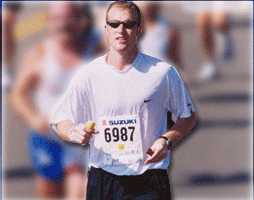
When I visit Ground Zero, I still believe his name will not be on that list.
But, it is… And, once again, I try to make sense of it all. Obviously, that doesn’t work.
Today, I’m wishing you well Scottie.
Hopefully, you and Larry are playing golf with the boys in NYC today.
Keep on tickin,
Adam
Ear Plugs And Hospitals… Amen!
Written By: Adam Pick, Patient Advocate, Author & Website Founder
Page Last Updated: May 13, 2025
If there is one thing I crave in life… It’s good sleep.
Robyn (my wife) and I love getting a restful 7-9 hours of sleep every night.
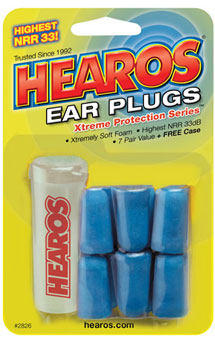
That said, when I went into the hospital for my aortic valve replacement operation, I wanted to make sure I would be able to sleep peacefully as my body started the healing process after my surgery.
If you are not aware, hospitals can be very, very, very noisy. There are machines bleeping all over the place. Nurses and doctors are constantly coming in-and-out of your room. Plus, there is the chance you will not have your own room. If you are sharing your room, you may have to listen to your neighbor and… your neighbor’s friend and family. Need I say it? More noise.
Because of the noise potential in hospitals and my hunger for sleep, I brought ear plugs to the hospital with me. I have to say “Thank God!” for that choice. It’s hard enough to sleep following surgery given the nightsweats that many patients (including me) experience. I used an ear plug brand called Hearos. These ear plugs are very comfortable, easy-to-use (no waxie goup), and the ear plugs really filtered out unwanted hospital noise. In my opinion, having ear plugs in the hospital is a must.
Remember, you are going to be spending a good amount of time in the hospital. My recent survey shows that most patients stay in the hospital about five days – more if complications occur. Again, you want to be as comfortable as possible. For this reason, there is a small list of items you may want to bring with you to the hospital including ear plugs.
Related Links:
- Top 5 Invisible Things Patients Should Bring to the Hospital
- Doctor Q&A: What Can Heart Surgery Patients Expect in the Hospital?
- Peggy’s 5 Steps to Prepare for Heart Surgery
Keep on tickin!
Adam
What Is The Most Commonly Operated On Heart Valve?
By Adam Pick on September 10, 2007
Hey everyone,
So, I just got stumped. I was asked a pretty unique question that I have never heard before. The question is, “What is the most commonly operated on heart valve?”
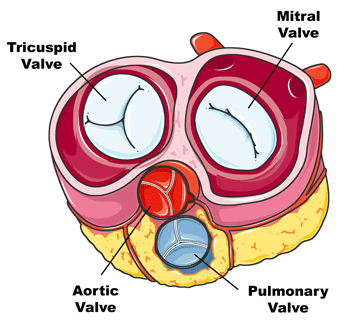
As you know, I’m not one to back down from a good, challenging question…
Therefore, I went to the Internet and started searching at Google.
My Chest Scar After Open Heart Surgery
By Adam Pick on September 5, 2007
On Monday, Labor Day, I chose to really enjoy myself. So, I did one of my favorite things…
I WENT TO THE BEACH!!!
As you can see, my family and I went to Manhattan Beach in California and experienced a picture perfect day. We enjoyed the sun, the Pacific Ocean and a picnic of submarine sandwiches.
When I downloaded the photos just now, I immediately noticed the smiles on everybody’s faces. We had so much fun.
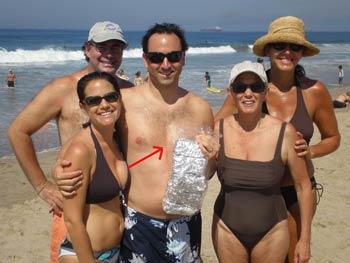
“Are There Potential Angiogram Risks or Angiogragraphy Dangers?” Asks Karen
Written By: Adam Pick, Patient Advocate, Author & Website Founder
Page Last Updated: June 8, 2025
Yesterday, I received an interesting email from Karen, who has been diagnosed with severe aortic stenosis. Her cardiologist told her that an angiogram will be needed prior to surgery. Karen’s questions to me were about the exam and angiogram risks.
More specifically her questions were, “Does an angiogram hurt? Is it painful? Is there any potential danger or angiogram risks during the test?”
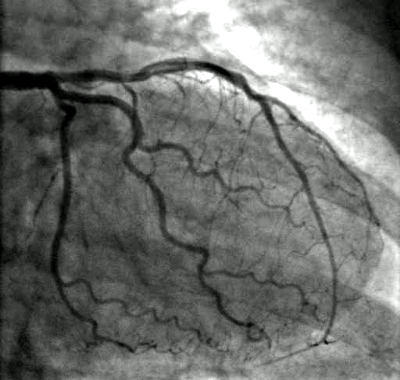
Unfortunately, I have no personal experience that enables me to respond to the questions about the pain of an angiogram. Although I did have a double heart valve replacement (aortic and pulmonary valves), I did not have an angiogram prior to surgery. Because, I was relatively young and in good, physical condition, my surgeon (Dr. Vaughn Starnes), did not feel it was necessary.
That said, many patients will have an angiogram during the diagnosis period and/or the day before surgery.
“Angiogram?” you may be wondering, “What the heck is an angiogram? What are the potential angiogram risks or dangers?”
What Are The Common Coumadin Medication Interactions?
By Adam Pick on September 3, 2007
As we’ve talked about before, Coumadin (Warfarin Sodium) is used by patients following heart valve replacement in which mechanical heart valves are selected by the patient and/ or surgeon. You can click here to learn more about Coumadin medication and its long-term use for preventing blood clots on mechanical heart valves following heart valve surgery.
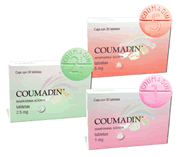
That said, this blog is also starting to answer some questions about Coumadin medication interactions with other popular drugs – including Coumadin and Prilosec and Ultram and Coumadin.
In the near future, Dr. Robert Light and I are going to be addressing some of the other contraindications of Coumadin use and pharmaceuticals.
Heart Murmur Issues With Loratadine And Aortic Stenosis?
Written By: Adam Pick, Patient Advocate, Author & Website Founder
Page Last Updated: June 12, 2025
I spent the first 33 years of my life with a heart murmur resulting from a congenital heart disorder known as a bicuspid aortic valve.
Now? After successful heart valve replacement surgery… Guess what? No more more heart murmur!
However, given my history, I am very sensitive to any questions I receive about heart murmurs. Although most murmurs do not results in heart valve surgery, some do. That said, taking preventative steps to minimize the risk of heart valve damage is critical.
Earlier today, I received an email about heart murmurs and loratadine. The questions read, “Can Loratadine cause a heart murmur?” and “Does Loratadine affect Aortic Stenosis?”
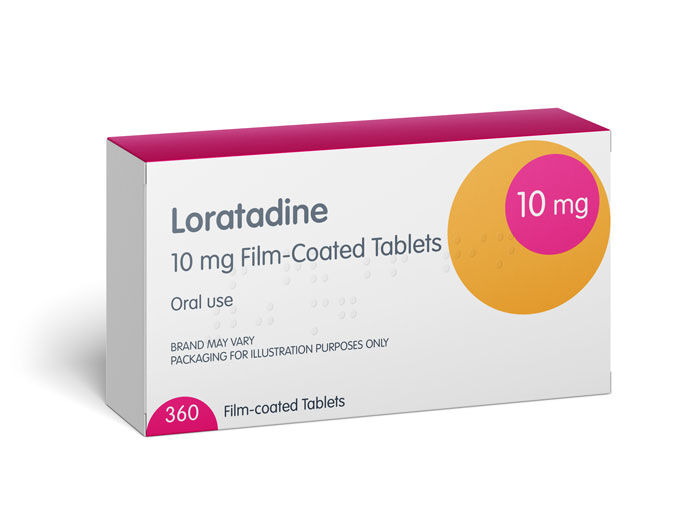
So you know, Loratadine is the generic name of popular antihistamine that is more readily known as Claritin. The product is made by Schering-Plough and is consumed in tablet or liquid form.
What Is The Medtronic Hancock Porcine Heart Valve?
Written By: Adam Pick, Patient Advocate, Author & Website Founder
Page Last Updated: June 3, 2025
There are several choices a patient will make as they prepare for heart valve replacement surgery – the surgeon, the hospital, the procedure, where to recover, etc. For those patients who chose to have a tissue valve replacement, the question ultimately becomes, “Which tissue valve should I chose?” and “Which manufacturer makes the best valve for me?”
In this post, I am going to profile a number of the leading valve manufacturers (Medtronic, Edwards, Abbott, On-X) and their valve replacement products. In my opinion, it really does help to know more about the valve that may accompany you during the rest of your life, right?
Today, I am going to profile the Medtronic Hancock Porcine Heart Valve from Medtronic.
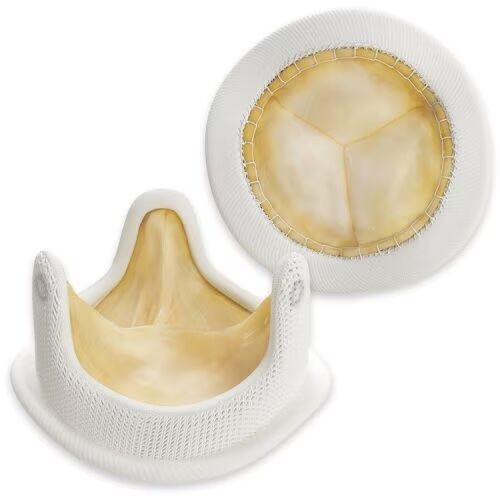
Sex After Heart Surgery: What Should Patients Know?
Written By: Adam Pick, Patient Advocate, Author & Website Founder
Page Last Updated: June 23, 2025
During my recovery from aortic and pulmonary valve replacements, there were many memorable experiences. There were “highs” during my recovery – my engagement to Robyn. And, there were “lows” during my recovery – cardiac depression.
That said, one of the more memorable experiences dealt with sex after heart surgery.

As you would imagine, this is a a very common question when I chat with patients and caregivers about the recovery from cardiac procedures including heart valve repair and heart valve replacement. The question usually goes like this, “How long until I/we can have sex after heart surgery?”
Well…
During my recovery, I did muster up the uncomfortable courage to ask Nurse Carrie this exact question about sex after heart surgery. Carrie looked at me and said, “Can you walk up two flights of stairs?”
I nodded yes.
Carrie exclaimed, “You’re good to go sailor! It’s time for sex after heart surgery! I hereby give you permission to do the Wild Thing!”
I laughed out loud.
It was a classic moment that belonged in some sort of fantastic movie.
FYI, this conversation between Nurse Carrie and I happened about four weeks after my double valve replacement surgery. However, you should know that while this story is quite playful, there are a number of post-operative issues which may inhibit the patient’s desire to re-engage in sexual activity following surgery.
Related Links:
- Driving After Heart Valve Surgery
- Coffee and Caffeine After Open Heart Surgery
- Climbing Stairs After Heart Surgery
Keep on tickin!
Adam
Dr. Robert Light To Provide Medical Insight On Heart Surgery Blog
By Adam Pick on August 31, 2007
Earlier today, it was announced that Dr. Robert T. Light, American Board Diplomat of Psychiatry and Neurolgy, would provide expert medical commentary on Adam’s Heart Valve Surgery Blog.
Dr. Robert T. Light is a practicing physician in Virginia Beach, Virginia and specializes in drug interactions, human physiology, psychiatric medicine.
“I am thrilled to welcome Dr. Robert Light to our growing team of experts focusing on patient care specific to heart surgery,” noted Adam Pick, the author of The Patient’s Guide To Heart Valve Surgery and blog moderator.
Adam’s Heart Valve Surgery Blog was launched in December, 2006 to serve as a resource for both patients and caregivers dealing with the realities of heart valve repair and heart valve replacement – from diagnosis through recovery.
“Adam has taken his own experience as a heart valve surgery patient and created something very unique and very helpful for patients and caregivers around the world,” Dr. Robert Light stated. “I am very excited to share my own thoughts and medical expertise on Mr. Pick’s cardiac surgery blog.”
Dr. Robert Light has already begun sharing his thoughts on prior blogs including Coumadin and Prilosec as well as Contraindications of Ultram and Coumadin.
Are “Do It Yourself” Cardiac Rehabilitation Programs Available?
By Adam Pick on August 31, 2007
I must admit. Entering Torrance Memorial Cardiac Rehab Program was the turning point in my recovery from aortic and pulmonary heart valve replacements (known as the Ross Procedure). That said, I am a big, huge, tremendous fan of finding a good cardiac rehabilitation program following open heart surgery.
“Why?” you are wondering.
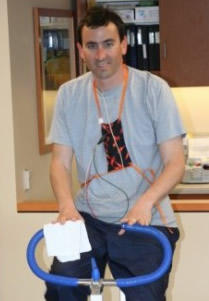
Adam Pick At Torrance Memorial Hospital
Cardiac Rehab Program (California)
Are There Coumadin And Prilosec Contraindications To Be Aware Of?
By Adam Pick on August 31, 2007
The other day, I wrote a blog about the Contraindications of Ultram and Coumadin. Since then, I have been bombarded with questions about other potential issues, conflicts and side-effects of Coumadin (Warfarin Sodium). That said, I will respond to each of your questions over the next few weeks. To advance this topic, I have consulted with a psychiatrist who might be co-blogging with me on this subject.
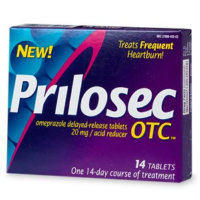
Anyways, one of the questions I recently received was, “Are there any potential issues of taking Coumadin and Prilosec following heart valve replacement surgery?”
First off, it helps if we understand what the drugs Coumadin and Prilosec are and what they were designed to do. As I have previously written, Coumadin is used by heart valve replacement patients following surgery to prevent blood-clots on their mechanical heart valve replacements.
Prilosec, on the other hand, is used to treat symptoms of GERD, or gastroesophageal reflux disease, and other conditions resulting from excess stomach acid.
Heart Palpitations… What Can You Do?
Written By: Adam Pick, Patient Advocate, Author & Website Founder
Page Last Updated: May 12, 2025
It was six months after my aortic and pulmonary valve replacements (known as the Ross Procedure). I was back at work sitting at my desk when….
All of a sudden, my heart felt like it was flip-flopping and beating upside-down in my chest. Literally, my heart started doing a foreign dance. It was one of the weirdest feelings.
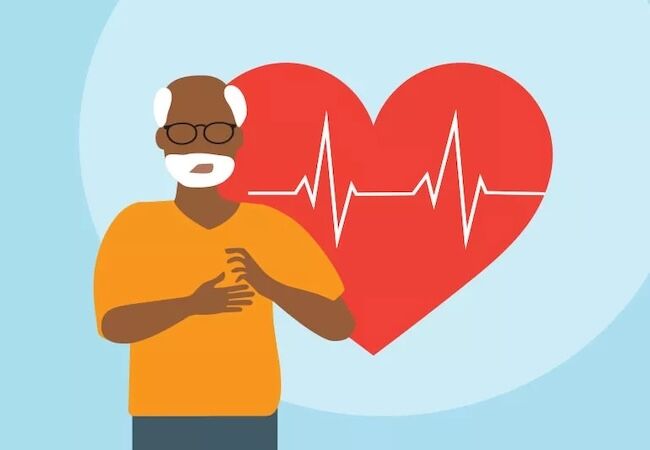
Then, it was gone. My heart returned to its normal beat. Sixty seconds later, I was on the phone with Dawn, the nurse of my cardiologist, Ben Rosin at Torrance Memorial Hospital. Dawn was pragmatic. She asked me to describe the sensation.
Are There Contraindications Of Ultram And Coumadin?
By Adam Pick on August 29, 2007
Earlier today I received an interesting question regarding Coumadin (Warfarin Sodium) and the drug Ultram. Specifically, the question read, “Are there any contraindications of Ultram and Coumadin?”.

I have to admit, this is the first time I ever heard this question. That said, I became intrigued by the possibility of learning even more about Coumadin and whether or not there were any contraindications of Ultram and Coumadin. As you may know, heart valve replacement patients which select mechanical valves are typically required to use Coumadin (generic name Warfarin) to prevent clots from forming on the mechanical valves.
Do You Have Any Bicuspid Aortic Valve Pictures?
By Adam Pick on August 29, 2007
So, I just received an email asking, “Do you have any pictures of a bicuspid aortic valve?”
Well, considering I had a bicuspid aortic valve for the first 33 years of my life, I definitely researched and located pictures of bicuspid aortic valves for my book.
As you can see below, the aortic valve on the left is normal – the valve has three leaflets and three cusps.
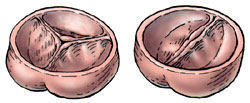
Porcine Valves – What is A Porcine Heart Valve Replacement?
By Adam Pick on August 27, 2007
I just received an email from Eddie who is preparing for his heart valve replacement surgery. Eddie has mitral valve prolapse and severe mitral regurgitation. Eddie is 67 years old and is considering a tissue valve. Specifically, Eddie is leaning towards a porcine valve (aka a pig valve) and has several questions.
Eddie writes, “Adam – My surgeon has had a lot of success with porcine heart valve transplants. But, I still have questions including… What exactly is a porcine valve? Do you have any pictures or images of porcine valves? Are there any adverse effects of using a porcine valve? Are porcine valves safe? Thanks, Eddie.”
These are critical questions for the valve replacement selection process. That said, I’m going to do my best to answer Eddie’s questions about porcine valves.
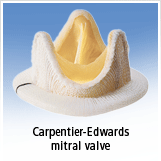
First, let’s see what a porcine valve looks like. While there are several porcine valve manufacturers, above you will find a picture of an Edwards Lifesciences’ mitral valve replacement, known as the Carpentier-Edwards valve. Recently, I toured Edwards manufacturing center and learned how porcine valves are manufactured.
What Is It Like Recovering From Aortic Valve Surgery?
By Adam Pick on August 26, 2007
One of the most common questions I receive about heart valve surgery focuses on the “recovery”. As you can read in my story, I had a special type of aortic valve surgery known as the Ross Procedure.
That said, I can provide some personal insight in answering questions like:
- “What is it like recovering from aortic valve surgery?”
- “When did you return to work?”
- “Is the recovery from aortic valve surgery painful?”
As you can probably tell, the list of questions regarding the recovery from open heart surgery could go on and on and on and on.

In my opinion, this is one of the biggest problems with cardiac surgery today.
What Should I Know About Flying After Open Heart Surgery?
Written By: Adam Pick, Patient Advocate, Author & Website Founder
Page Last Updated: June 10, 2025
Earlier this year, I interviewed 78 patients about their heart surgery experience. Most of those patients had open heart surgery – including heart valve replacement surgery and heart valve repair operations.
One of the questions asked during this survey was, “Did you travel outside your hometown for your cardiac surgery?”
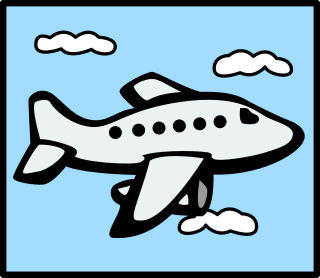
Cow Valve Replacement Surgery – Bovine Valves
Written By: Adam Pick, Patient Advocate, Author & Website Founder
Page Last Updated: May 10, 2025
I will never forget my first interview with a heart surgeon.
My cardiologists – Dr. Wyman and Dr. Chaikin – had already confirmed that my aortic valve was suffering from severe stenosis and regurgitation. As they both told me, I needed a new valve and I needed it soon.

The first surgical interview I held was with Dr. Alfredo Trento, the Director of Cardiothoracic Surgery at Cedars-Sinai Medical Hospital in Los Angeles, California.






